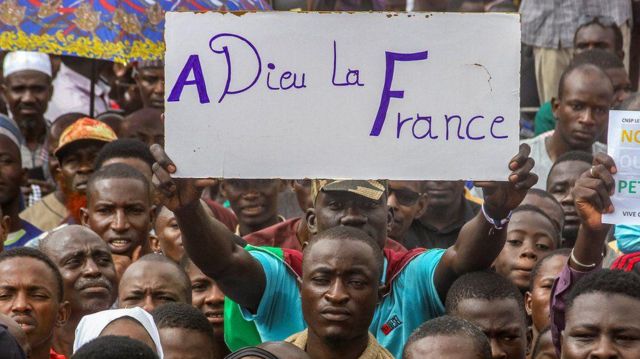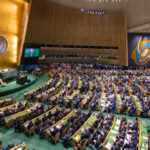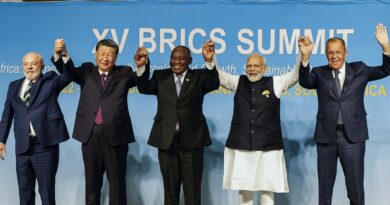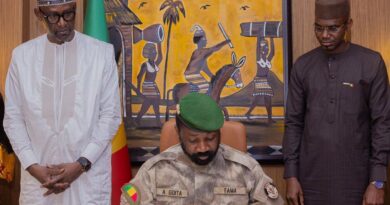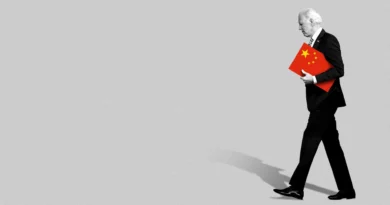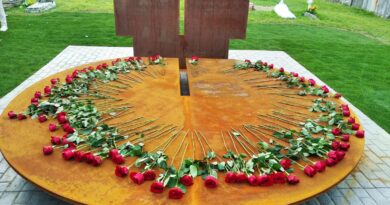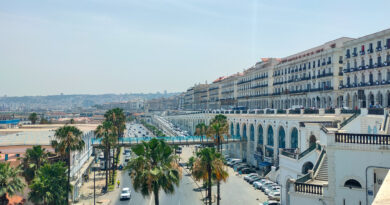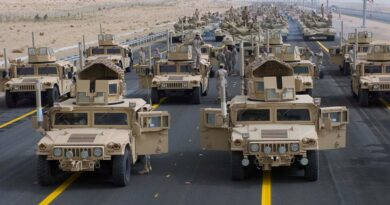What is happening in Niger is far from a typical coup
VIJAY PRASHAD
On July 26, 2023, Niger's presidential guard mobilized against the incumbent president -Mohamed Bazoum- and staged a coup. A brief contest between the different armed forces of the country ended with the agreement of all branches on the removal of Bazoum and the creation of a military junta led by General Abdourahamane “Omar” Tchiani, commander of the Presidential Guard.
This is the fourth country in the African Sahel region to have suffered a coup: the other three are Burkina Faso, Guinea and Mali. The new government announced that it would stop allowing France to extract uranium from Niger (one in three French light bulbs is powered by uranium from the Arlit deposit in northern Niger). The Tchiani government has revoked all military cooperation with France, which means that the 1.500 French soldiers will have to start packing their bags (as they already did in Burkina Faso and Mali). Meanwhile, there has been no public statement about Air Base 201, the US facility in Agadez, a thousand kilometers from Niamey, the country's capital. It is the largest drone base in the world and is key to US operations throughout the Sahel. US troops have been told to remain at the base for now and drone flights have been suspended. There is no doubt that the coup plotters are against the French presence in Niger, but this anti-French sentiment has not engulfed the US military footprint in the country.
Interventions
Hours after the coup stabilized, major Western states - especially France and the United States - condemned the coup and called for the reinstatement of Bazoum, who was immediately arrested by the new government. But neither France nor the United States seemed to want to lead the response to the coup. Earlier in the year, the French and US governments became concerned about an insurgency in northern Mozambique affecting Total-Exxon's natural gas field assets off the coast of Cabo Delgado. Instead of sending French and American troops, which would have polarized the population and increased anti-Western sentiment, France and the United States reached an agreement for Rwanda to send its troops to Mozambique. Rwandan troops entered the northern province of Mozambique and put down the insurgency.
Both Western powers appear to favor a "Rwanda"-type solution to the coup in Niger, but instead of Rwanda entering Niger, ECOWAS - the Economic Community of West African States - was expected to send its forces to restore to Bazoum.
One day after the coup, ECOWAS condemned the coup. ECOWAS encompasses fifteen West African states, and in recent years it has suspended Burkina Faso and Mali from its ranks because of coups in that country; Niger was also suspended from ECOWAS just days after the coup. Formed in 1975 as an economic bloc, the group decided - despite not having a mandate in its original mission - to send peacekeeping forces in 1990 into the heart of Liberia's civil war. Since then, ECOWAS has sent its peacekeeping troops to several countries in the region, including Sierra Leone and The Gambia.
Shortly after the coup in Niger, ECOWAS imposed an embargo on the country that included suspending its right to conduct basic trade transactions with its neighbors, freezing Niger's central bank assets held in regional banks, and halting aid foreign (which accounts for forty percent of Niger's budget). The most striking statement was that ECOWAS would take "all necessary measures to restore constitutional order."
The August 6 deadline given by ECOWAS expired because the bloc could not agree to send troops across the border. ECOWAS called for a “reserve force” to be assembled ready to invade Niger. ECOWAS then said it would meet on August 12 in Accra, Ghana, to consider its options. That meeting was canceled for "technical reasons."
Mass demonstrations in key ECOWAS countries - such as Nigeria and Senegal - against an ECOWAS military invasion of Niger have misled their own politicians into supporting an intervention. It would be naive to suggest that no intervention is possible. Events are moving fast and there is no reason to suspect that ECOWAS will not intervene before the end of August.
Coups in the Sahel
When ECOWAS suggested the possibility of an intervention in Niger, the military governments of Burkina Faso and Mali said that it would be a "declaration of war" not only against Niger, but also against their countries. On August 2, one of the main leaders of the coup in Niger, General Salifou Mody, traveled to Bamako (Mali) and Ouagadougou (Burkina Faso) to discuss the situation in the region and coordinate their response to the possibility of military intervention. of ECOWAS - or of the West - in Niger. Ten days later, General Moussa Salaou Barmou traveled to Conakry (Guinea) to request the support of this country from the head of the military government of Niger, Mamadi Doumbouya.
Suggestions have already been made for Niger - one of the most important countries in the Sahel - to be part of talks for a federation that will include Burkina Faso, Guinea and Mali. It would be a federation of countries that have carried out coups to overthrow what have been considered pro-Western governments that have not met the expectations of increasingly impoverished populations.
The story of the coup in Niger becomes part of the story of what the communist journalist Ruth First called “the contagion of the coup” in her remarkable book, The Barrel of the Gun: Political Power in Africa and the Coup ( 1970). Over the past thirty years, politics in the Sahel countries has seriously dried up. Parties with a history in national liberation movements, even socialist movements (such as Bazoum's party) have sunk to become representatives of their elites, who are conduits for a Western agenda.
The Franco-American-NATO war in Libya in 2011 allowed jihadist groups to leave Libya and pour into southern Algeria and the Sahel (almost half of Mali is in the hands of al Qaeda-linked formations). The entry of these forces gave local elites and the West the justification to further tighten limited trade union freedoms and extirpate the left from the ranks of established political parties. It is not that the leaders of the main political parties are right-wing or center-right, but that, whatever their orientation, they have no real independence from the will of Paris and Washington. They have become "puppets" of the West.
Lacking reliable political instruments, the country's discarded rural and petty-bourgeois sectors look to their sons in the armed forces for leadership. People like Burkinabe Captain Ibrahim Traoré (b. 1988), raised in the rural Mouhoun province, and Colonel Assimi Goïta (b. 1988), from the cattle market town and military redoubt of Kati, perfectly represent these large class fractions. Their communities have been completely left out of the harsh austerity programs of the International Monetary Fund, the theft of their resources by Western multinationals and the payments of Western military garrisons in the country.
Discarded populations with no real political platform to speak for them, these communities have rallied around their young servicemen. These are "colonel coups" -groups of ordinary people who have no other choice- and not "general coups" -elite groups to stop the political advance of the people-. That is why the coup in Niger is being defended in mass rallies from Niamey to the small, remote towns bordering Libya.
When I traveled to these regions before the pandemic, it was clear that anti-French sentiment found no other outlet than the hope of a military coup that would bring back leaders like Thomas Sankara of Burkina Faso, assassinated in 1987. In fact, Captain Traoré wears a red beret like Sankara, speaks with the latter's left-leaning directness and even imitates his diction. It would be a mistake to consider these men on the left, since they are moved by anger at the failure of the elites and Western politics. They do not come to power with a well-crafted agenda drawn from left-wing political traditions.
Niger's military leaders have formed a XNUMX-person cabinet headed by Ali Mahaman Lamine Zeine, a civilian who had been finance minister in a previous government and had worked at the African Development Bank in Chad. Military leaders occupy a prominent position in the cabinet. Whether the appointment of this civilian-led cabinet will split the ranks of ECOWAS remains to be seen.
Of course, the Western imperialist forces - in particular the United States, with troops on the ground in Niger - would not like this coup twist to continue. Europe - through French leadership - had shifted the borders of its continent from the northern Mediterranean Sea to the southern Sahara desert, subjugating the Sahel states in a project known as the G-5 Sahel.
Now, with anti-French governments in three of these states (Burkina Faso, Mali and Niger) and with the possibility of trouble in the remaining two states (Chad and Mauritania), Europe will have to fall back at their expense. Sanctions will be increased to undermine the mass support of the new governments and the possibility of military intervention will hang over the region like a hungry vulture.
Vijay Prashad is an Indian historian and journalist. Director of the Institute for Social Research tricontinental. He has written more than 20 books. The last one in collaboration with Noam Chomsky: "The retreat. Iraq, Libya, Afghanistan and the fragility of US power., reviewed by David Bollero at Globalter.
This article is published in collaboration with Globetrotter

